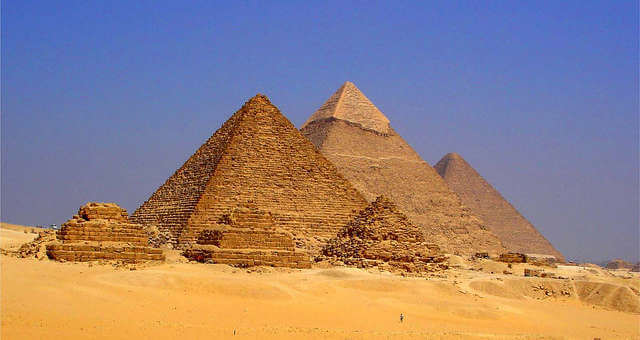The Wild Process Toward Freedom
Now, with all of that being said, let’s look at the wild process that God took Pharaoh through. The Hebrews wanted to be free, and God wanted them to be free. They cried out, and God brought a prophet, Moses, to deliver them. It’s a done deal; they are moving into the wilderness on the way to the Promised Land.
“In the passing of time the king of Egypt died. And the children of Israel sighed because of the bondage, and they cried out, and their cry came up to God on account of the bondage. God heard their groaning, and God remembered His covenant with Abraham, Isaac, and Jacob. God looked on the children of Israel, and God had concern for them” (Ex. 2:23-25).
However, since God won’t violate his own principle of established authority, he had to compel his delegate Pharaoh to agree with his plans and to make a governmental declaration that only Pharaoh himself could deliver—the people of God may go!
“Then the Lord said to Moses, ‘Go to Pharaoh and say to him, ‘Thus says the Lord: Let My people go, so that they may serve Me'” (Ex. 8:1).
We’ve heard this passage of scripture countless times, yet have you ever stopped to consider just what’s being said? We’re in the middle of this huge drama where some of the most bizarre signs and wonders ever recorded are taking place. By now in the story we have already had confrontations, staffs turning to serpents and a bold messenger of God risking his life by irritating the most powerful person in Egypt.
I’ll ask the question again—why in the world was all of this necessary? Why didn’t God simply snap his fingers and translate all of the Israelites into the wilderness (or directly to the Promised Land for that matter)?
Let’s look at one portion of the above passage again:
… Let My people go …
Is that not interesting? God didn’t say, “I’m taking my people, see ya!” He is making a demand on Pharaoh to let His people go.
Pharaoh had God’s rightful possession in his control. Because of Pharaoh’s governmental position, a position that God created and honored, he had to be the one to release the Israelites.
“Let every person be subject to the governing authorities, for there is no authority except from God, and those that exist are appointed by God. Therefore whoever resists the authority resists what God has appointed, and those who resist will incur judgment” (Rom. 13:1-2).
So, if God asked the Israelites to rebel against Pharaoh, clearly a very evil authority indeed, it would actually result in judgment landing upon them!
“Otherwise, if you will not let My people go, indeed I will send swarms of flies on you, and on your servants, and on your people, and into your houses. And the houses of the Egyptians shall be full of swarms of flies and also the ground wherever they are. ’I will in that day set apart the land of Goshen, in which My people dwell, so that no swarms of flies shall be there, in order that you may know that I am the Lord in the midst of the earth'” (Ex. 8:21-22).












